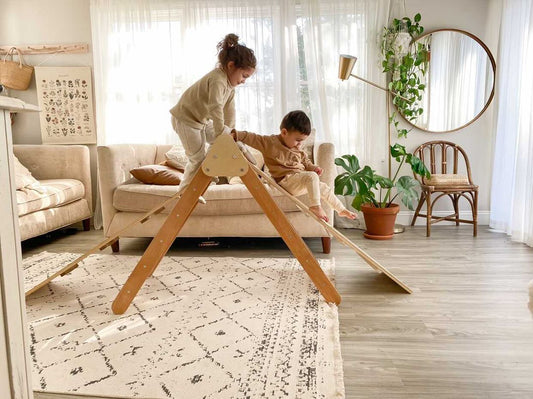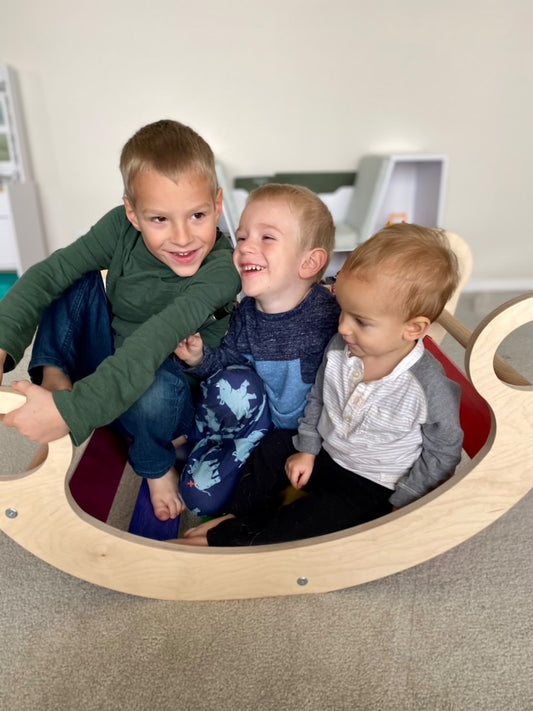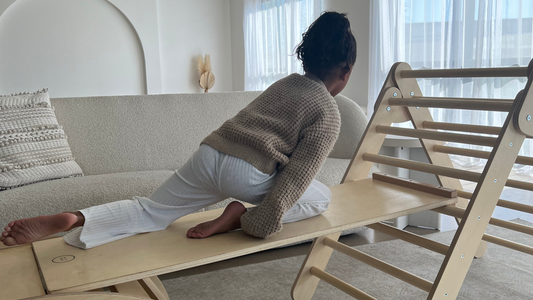Play is a fundamental aspect of childhood, and its importance cannot be overstated. It's not just about having fun but also serves as a crucial developmental tool for children. Bunny Hopkins, the brand that champions open-ended toys, understands the significance of play in nurturing young minds. This blog post will delve into the fascinating science behind the play and discover how it positively impacts a child's brain and body.
The Power of Open-Ended Play:
Before we dive into the science, let's understand what open-ended play means. Bunny Hopkins specializes in open-ended toys – these are the kind of toys that don't have a single "right" way to play with them. Instead, they encourage children to use their creativity and imagination to create endless possibilities. Whether building blocks, art supplies, or outdoor exploration kits, these toys provide the canvas for a child's unique adventures.
Boosting Brain Development
- Cognitive Development: Children who engage in open-ended play exercise their problem-solving skills. They must think critically, plan, and adapt to different scenarios, all vital for cognitive development.
- Imagination and Creativity: Open-ended play fosters imagination and creativity. It allows kids to dream stories, create unique worlds, and envision limitless possibilities. These creative skills are essential for future success in various fields.
- Language and Communication: Play often involves communication and storytelling. Children develop their language and social skills through interaction and dialogue, Whether playing house, imagining adventures, or collaborating on building projects.
Nurturing Emotional Well-being
- Stress Reduction: Play, especially in a relaxed and supportive environment, helps reduce stress in children. It provides an outlet for pent-up emotions, allowing kids to process and release their feelings.
- Self-Expression: Play offers a safe space for children to express themselves and work through their emotions. Whether they're imitating real-life situations or creating fantastical stories, it's a platform for self-expression.
- Building Resilience: In open-ended games, experimentation is expected. Children acquire the ability to continue despite obstacles and failures, fostering resilience and a growth attitude.
Physical Health Benefits
- Motor Skills: Running, jumping, climbing, and building with open-ended toys contribute to developing a child's fine and gross motor skills. It helps them become more coordinated and physically fit.
- Balance and Coordination: To enhance a child's physical abilities, certain open-ended toys require balance and coordination.
- Outdoor Play: Many open-ended toys encourage outdoor exploration, which is crucial for children's physical health. It helps them develop a love for nature and an appreciation for the environment.
The science behind the play is genuinely awe-inspiring. Bunny Hopkins' dedication to open-ended toys aligns perfectly with play's developmental benefits. So, when you see your child immersed in their creative world, remember that they're not just having fun; they're enhancing their brain, nurturing their emotions, and strengthening their body. Embrace the power of play and watch your child grow into a well-rounded, imaginative, and resilient individual. Bunny Hopkins' open-ended toys are lighting the way in a world that needs more creative thinkers.




